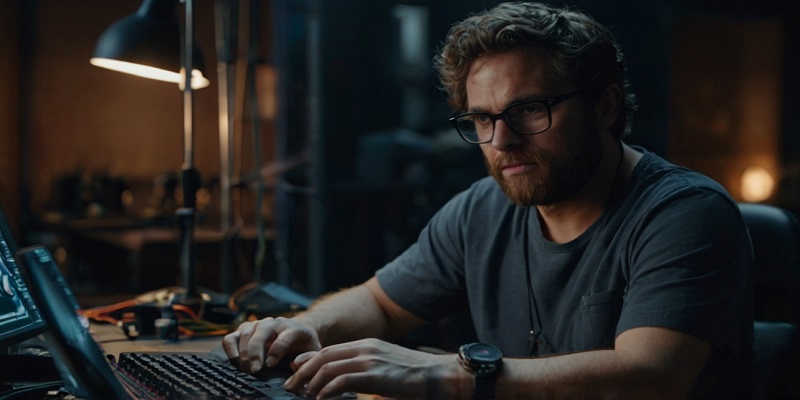The gaming industry has witnessed explosive growth over the past few decades. With advancements in technology, the complexity and creativity involved in game development have reached new heights. Central to this process is the role of a game designer. Game designers are the visionaries behind the captivating worlds, engaging gameplay mechanics, and immersive experiences that define modern video games.
The Evolution of Game Design
Game design has evolved significantly from the early days of simple pixelated graphics and basic gameplay. Initially, game designers often wore multiple hats, handling programming, art, and design. However, as games became more complex, the need for specialized roles emerged. Today, game design is a distinct discipline within the game development process, with designers focusing on creating the core mechanics, storylines, and user experiences that make games engaging and enjoyable.
Responsibilities of a Game Designer
Game designers are responsible for conceptualizing and developing the core aspects of a game. Their primary duties include:
Concept Development:
Game designers start with an idea, which they develop into a comprehensive concept. This involves brainstorming game mechanics, themes, and narratives.
Gameplay Mechanics:
One of the most critical tasks is designing the gameplay mechanics. This includes defining the rules, challenges, and interactions that will engage players.
Storytelling:
In many modern games, storytelling is a crucial element. Game designers create intricate plots, character arcs, and dialogues to enhance the immersive experience.
Level Design:
Designers craft the levels or stages of a game, ensuring they are challenging yet enjoyable. They balance difficulty and progression to keep players motivated.
User Experience (UX):
Ensuring a smooth and intuitive user experience is essential.However, Game designers work on the interface and controls to make the game accessible and enjoyable.
Prototyping:
Before full-scale development, designers create prototypes to test and refine gameplay mechanics. Additionally, This iterative process helps identify potential issues early.
Collaboration:
Game designers collaborate closely with other team members, including artists, programmers, and sound designers, to bring their vision to life.
Essential Skills for a Game Designer
To excel in game design, several key skills are essential:
Creativity and Innovation
Game designers must be highly creative, constantly generating new ideas and innovative concepts. They need to think outside the box to create unique and captivating gaming experiences.
Technical Proficiency
While game designers are not necessarily programmers, having a basic understanding of programming languages and software tools is beneficial. Thus, Familiarity with game engines like Unity or Unreal Engine allows designers to implement and test their ideas effectively.
Problem-Solving Skills
Designing a game involves overcoming numerous challenges. Game designers must be adept at identifying problems and devising effective solutions to ensure the game functions smoothly and provides an enjoyable experience.
Communication and Collaboration
Effective communication is crucial in game development. Ultimately, Designers need to convey their ideas clearly to team members and collaborate effectively to ensure everyone is aligned with the project’s vision.
Attention to Detail
A keen eye for detail is essential to ensure all elements of the game, from graphics to gameplay mechanics, are polished and cohesive. Small details can significantly impact the overall player experience.
The Impact of Game Designers on the Industry
Game designers play a pivotal role in shaping the gaming industry. Their creativity and vision drive the development of innovative games that push the boundaries of technology and storytelling. Here are some ways game designers impact the industry:
Driving Innovation
Game designers are at the forefront of innovation, constantly exploring new gameplay mechanics, narrative techniques, and technologies. Their willingness to experiment and take risks leads to groundbreaking games that captivate audiences.
Enhancing Player Engagement
By creating compelling gameplay experiences, game designers enhance player engagement and retention. Well-designed games keep players coming back, fostering a loyal fan base and driving revenue for developers.
Expanding the Audience
Inclusive and diverse game design has broadened the appeal of video games to a wider audience. In addition, Designers who prioritize representation and accessibility help attract players from different backgrounds, making gaming a more inclusive medium.
Influencing Popular Culture
Many modern games have a significant cultural impact, influencing movies, TV shows, and other media. Furthermore, Iconic characters, storylines, and gameplay mechanics created by game designers often become part of popular culture, shaping trends and inspiring other forms of entertainment.
The Future of Game Design
The future of game design looks promising, with several trends shaping the industry:
Virtual Reality (VR) and Augmented Reality (AR)
VR and AR technologies offer new opportunities for immersive gameplay experiences. Furthermore, Game designers are exploring these technologies to create more engaging and interactive games.
Artificial Intelligence (AI)
AI is transforming game design by enabling more dynamic and responsive gameplay. Thus, AI-driven characters and environments can adapt to player actions, creating more personalized and immersive experiences.
Cross-Platform Play
With the rise of cross-platform play, game designers are focusing on creating seamless experiences across different devices. In addition, this trend allows players to enjoy games on their preferred platforms without compromising on quality.
Increased Focus on Narrative
Storytelling continues to be a central element in game design. Additionally, Designers are exploring new ways to integrate narrative into gameplay, creating richer and more emotionally resonant experiences.
Conclusion
The role of a game designer in modern game development is multifaceted and ever-evolving. These creative visionaries drive the innovation and creativity that define the gaming industry. Furthermore, By conceptualizing unique gameplay mechanics, crafting engaging narratives, and collaborating with diverse teams, game designers create experiences that captivate and entertain players worldwide. As technology continues to advance, the future of game design holds exciting possibilities, promising even more immersive and engaging experiences for gamers.



































